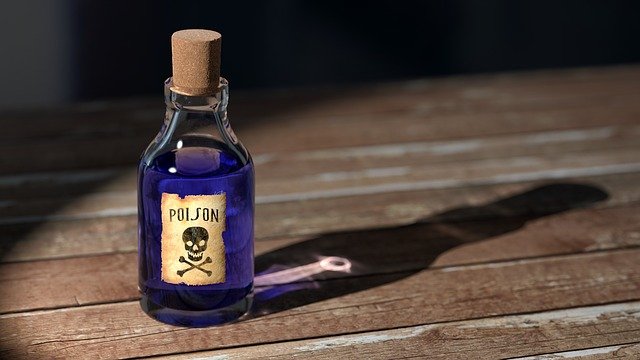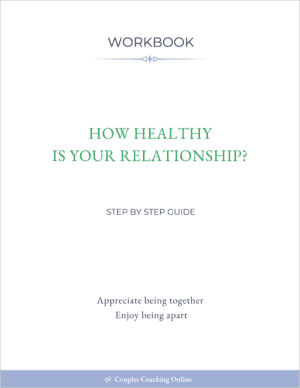Break Free from a Toxic Relationship

Are you feeling trapped in a relationship that seems to be causing more pain than joy?
Toxic relationships are the ones that bring emotional harm, erode self-esteem, and hinder personal growth. They can manifest in various forms, including emotional abuse, physical abuse, controlling behaviours, and one-sided dynamics. Recognising the warning signs of toxic behaviour is a crucial step towards breaking free from abusive relationships and toxic people.
The goal of this article is simple: to provide you with insights, practical advice, and an understanding of the complex dynamics at play, so you can make an informed decision about whether to cope with the toxicity or let it go.
By the time you finish reading, you’ll be better equipped to recognize, confront, and, when necessary, liberate yourself from the chains of toxicity towards becoming your best self and creating the loving relationships you deserve.
Before we can effectively address and overcome toxic relationships, it’s essential to understand what they are and how to recognise them.
What Is a Toxic Relationship?
A toxic relationship is a relationship that is unhealthy and damaging to your emotional, mental and physical health.
Unlike unhealthy relationships that can be improved, toxic relationships have very little chance of improving.
Couples in toxic romantic relationships tend to feel miserable, and at the same time powerless to do anything about their situation. That’s why getting out of toxic relationships without professional help is nearly impossible. So, don’t pressure yourself with an expectation that you “should be able” to leave. Later on, we’ll see exactly why such expectation is almost unrealistic.
Romantic relationships develop because people believe they can make a great couple. But, over time partners find themselves having disagreements, which is normal. Not handling disagreements in a healthy way leads to unresolved problems, unfulfilled needs, negative feelings and resentment.
With time, disagreements can grow into arguments and fights that may expand into controlling behaviour and verbal abuse. If the situation continues to deteriorate due to toxic behaviour from one or both sides, people may find themselves in an abusive relationship with physical violence.
An example of toxic behaviour is when one partner manipulates the other through controlling behaviours, while the other partner feels powerless to do anything about it.
Not every toxic relationship is easy to identify. Toxic behaviour can manifest in subtle ways and may often obscure reality while hiding in plain sight. Let’s take a look at some toxic traits to look for in order to identify a toxic person.
Toxic Traits of a Toxic Person
Toxic people often exhibit patterns of toxic behaviour that, when left unaddressed, can harm people around them. Here are some toxic traits to watch out for:
- Manipulation: A toxic person uses tactics like toxic communication to control and influence others for their own gain. This leads to the other partner losing self-awareness and becoming more suggestible.
- Narcissism: They have an excessive focus on themselves, often disregarding the needs and feelings of others. Toxic people talk about their own needs, leaving their partner completely lacking self-care. They frequently prey on their partner’s insecurities, fears and doubts.
- Lack of empathy: A toxic person struggles to understand or relate to the emotions and experiences of others. So, their abusive behaviour may not even bother them.
- Gaslighting: A toxic person distorts or denies reality to make their victim question their own perception. To achieve this influence, they may resort to frequent lying.
- Constant criticism: A toxic person habitually finds fault in others.
- Blame-shifting: They avoid taking responsibility for their actions by placing blame on others.
- Jealousy and possessiveness: They exhibit controlling behaviour with constant suspicion and excessive jealousy.
- Mood swings: They can be unpredictable and their emotions may rapidly fluctuate. Inconsistent emotional energy can be very disturbing for the other partner.
- Isolation: They may try to isolate their victim from friends and family to maintain control.
- Lack of accountability: They rarely admit fault or take responsibility for their actions.
- Passive-aggressive behaviour: Passive-aggressive behaviour is a form of indirect expression of hostility, resentment, or frustration.
These behaviour patterns can turn a relationship toxic. So, watch out for them and don’t hesitate to get help from a family member and consider confidential assistance from a relationship therapist. Individual therapy sessions could be a good place to start.
Types of Toxic Relationships
Toxicity can take various forms, each with its own unique set of challenges and dynamics.
Emotionally abusive relationships
One of the most insidious forms of toxicity is emotional abuse. In these relationships, individuals may endure constant belittling, manipulation, or emotional cruelty. It can leave profound scars on one’s overall physical and mental health.
Controlling relationships
Controlling relationships are characterized by a power dynamic where one partner seeks to dominate and manipulate the other. Control can manifest in various ways, from dictating daily activities and money to isolating a person from their friends or a family member who senses their toxic behaviour.
One-sided relationships
Fulfilling relationships thrive on mutual effort, but in a one-sided relationship, the burden of emotional sweat often falls disproportionately on one partner. This can lead to feelings of resentment and emotional exhaustion. Even when you try to make things better, you still feel worse in the end.
Overlapping and intersecting types
It’s important to note that these types are not mutually exclusive. In fact, they often overlap and intersect, creating complex and challenging dynamics. For instance:
- An emotionally abusive relationship can also be highly controlling, with one partner using emotional manipulation to maintain control.
- One-sided relationships can sometimes be emotionally abusive, as one person may exploit the other’s willingness to give more.
- Controlling behaviours can also be emotionally abusive, as they often involve exerting power and control through manipulation and intimidation.
Warning Signs of a Toxic Relationship
It’s not always easy to differentiate between a healthy relationship and a toxic one. Toxicity often comes as a result of unresolved relationship issues that manifest in subtle ways.
Recognizing the signs of toxic behaviour is pivotal to gaining self-awareness and the clarity needed to make informed decisions about the relationships in your life. Some key signs of toxic relationships include:
- Constant criticism: In a toxic relationship, criticism isn’t constructive; it’s relentless and demeaning, leaving the victim to feel worse with every interaction.
- Lack of respect: Mutual respect is a cornerstone of healthy relationships. In toxic ones, disrespect is a recurring theme.
- Controlling behaviour: Toxic individuals may try to control your actions, and choices, or even isolate you from loved ones.
- One-sided effort: Healthy intimate relationships thrive on mutual effort and reciprocity. Toxic ones often involve one partner carrying the emotional burden. A one-sided relationship is never healthy and is almost guaranteed to turn toxic.
- Emotional manipulation: Toxic partners may use guilt, manipulation, or emotional blackmail to get their way.
- Verbal abuse: Name-calling, insults, and hurtful language are all examples of toxic communication and can also be signs of abusive relationships.
- Isolation: Toxic individuals might isolate you from friends and family, making you increasingly dependent on them.
Signs across different kinds of relationships
Toxic behaviours can manifest differently in various relationships. Whether it’s intimate relationships, friendships, or a familial bond, toxicity comes in many forms.
- In romantic relationships, toxicity can involve jealousy, possessiveness, and emotional or physical abuse.
- In friendships, toxic friends may be overly competitive, betray trust, or consistently bring negativity.
- In family relationships, toxicity might manifest as manipulation, favouritism, or a history of unresolved conflicts with a family member.
The Impact of a Toxic Relationship
Toxic relationships are not mere inconveniences; they can have profound and far-reaching effects on your emotional and mental health.
Negative effects on mental health and emotional well-being
Toxic relationships can take a heavy toll on your mental health and even physical health. Here are some ways in which they can impact you:
- Anxiety and stress
- Depression
- Low self-esteem
- Diminished sense of self-worth
- Isolation – a toxic person may try to isolate you from friends and family members.
A diminished sense of self-esteem and self-worth can unfold through constant criticism and emotional manipulation can leave you doubting your own feelings.
If you constantly feel alone, ignored, misunderstood, not cared for, not valued, lost and confused, consider getting individual therapy to get a fresh perspective on your situation.
Real-life example
Imagine a person in a romantic relationship with a partner who constantly criticizes their appearance and choices. Over time, this individual begins to internalize these criticisms, leading to feelings of inadequacy and self-doubt. They may develop anxiety and depression, feeling trapped in a predicament that diminishes their self-worth.
This example demonstrates the gravity of toxic relationships and the urgent need to address them.
Can a Toxic Relationship Be Fixed?
The line between an unhealthy relationship and a toxic one can be blurry. In an unhealthy situation, you may very well consider fixing it by getting some help from a friend or a family member who understands your situation inside out.
However, if you are stuck in a toxic dynamic, your priority should be to move away from it, until you get some clarity.
You can fix most problems if you and your partner are willing to hear each other’s point of view and work out your issues together.
Since the difference between healthy and unhealthy relationships has such a great impact on your life, it’s worth checking to see if your healthy relationship has likely become toxic.
Here’s a quick checklist to distinguish between healthy behaviours and toxic ones:
- A healthy relationship is based on trust and understanding and contributes to your life.
- In a healthy relationship, partners have common interests to have fun together and great communication to discuss interesting topics.
- A toxic relationship has a negative impact on your life. Among many reasons that lead to a toxic dynamic, bad communication, a lack of understanding and unresolved issues are the common ones.
- In a healthy relationship, you support and encourage each other’s personal development instead of suppressing it.
When you notice signs of toxic behaviour, it’s time to reassess and try to fix issues or let it go and move on.
When to Leave a Toxic Relationship
Most relationships deteriorate slowly over time. So it can be hard to pinpoint the exact moment that tells you it’s time to break up. If you are choosing to stay in a toxic relationship, it comes down to how much suffering are you willing to tolerate.
Some couples try to stay together even when it doesn’t work.
“Sticking with it”, can be a sign of commitment, but is it worth committing to an unhealthy relationship that’s toxic to your personal life? If your relationship doesn’t work and you are choosing to keep it going: What is keeping you in this situation? Is your relationship worth it?
Answering the following questions should give you some idea of where you stand and whether there is still a chance to save your relationship:
- Are you in a healthy relationship or a toxic one?
- Do you and your partner have the willingness and emotional capacity to address your issues?
- Are you finding it challenging to have a conversation without arguments?
- Are you willing to take time apart to have some personal space and reflect on your relationship?
- How have you contributed to the toxic dynamic?
Everyone’s situation is unique, so if you are in doubt, consider getting some help from a therapist or a relationship coach.
How to Get Out of a Toxic Relationship
Breaking free from a toxic relationship is a courageous and transformative journey. However, letting go of both healthy and unhealthy relationships is never easy. To get you started, here are a few things you can consider to navigate this process and safely leave:
- Plan ahead: Develop a detailed plan for leaving, including finding a safe place to go and securing your essentials like identification documents, financial resources, and important belongings.
- Inform trusted individuals: Let friends or family members know about your situation and your plans to leave. They can provide emotional support and assistance.
- Legal protection: If necessary, seek legal protection, such as a restraining order, to ensure your safety.
How to Move on from a Toxic Relationship
Prioritise self-care
Your well-being should be your top priority. Practice self-care, nurture your mental health, and seek professional help if needed. Prioritize self-care practices to nurture your physical and emotional health. This may include exercise, meditation, journaling, and seeking activities that bring you joy. Focus on yourself and you might even re-discover yourself. Acknowledge and embrace all the emotions you are experiencing. Take as much time as you need for yourself before you get into a new romantic relationship.
Embrace a fulfilling future
Remember that with the right awareness and actions, you can break free from toxicity and create relationships that nurture your emotional, mental, and spiritual growth. Embrace the opportunity to build a brighter and more fulfilling future, where love, respect, and happiness are your guiding stars.
Strive for a healthy relationship
Remember that a healthy relationship is possible. Look for connections that empower you, nurture your growth, and bring positivity into your life. Leaving a toxic relationship is not the end; it’s a new beginning. Move towards healthy relationships while learning from past mistakes. Reflect on what worked and what didn’t in your relationship and consider your contribution to how it worked out.
Learn to set boundaries
Establish clear boundaries in future relationships to protect yourself from toxicity. Healthy boundaries are the cornerstone of any thriving relationship, and they are particularly vital in the aftermath of a toxic one. In our in-depth article about boundaries, we’ll delve into the significance of establishing boundaries, offer tips and strategies for setting and maintaining them, and explore the connection between self-worth and boundary-setting.
Build a support network
You don’t have to go through this journey alone. Building a support network is crucial. Trusted friends and family members can provide emotional support and practical assistance during these challenging times.
Trained advocates and confidential assistance
In some situations, seeking assistance can be invaluable:
- National Hotlines: Reach out to national hotlines for domestic violence or abuse. Trained advocates can offer confidential guidance and resources.
- Shelters and Services: Domestic violence shelters and services can provide a safe haven and resources to help you rebuild your life.
Get professional help
Strong emotions can often cloud your judgment, making it challenging to recognise the real cause of your problems. On such occasions, a relationship therapist or a coach can give you guidance and an unbiased opinion on your situation. Individual therapy could be a good option to begin with. It will give you the chance to talk to someone about your relationship issues to find the best way to approach your situation.
Lean on friends, family, or a therapist for emotional support and guidance during your healing journey. Seek support from trusted friends, family, or a relationship therapist when needed. You are not alone on this journey, and there are resources and people ready to support you.
If you ever have questions or need guidance, don’t hesitate to reach out. Every day we help couples to turn disfunctional relationships into ones that help you be your best self and live in harmony with your true feelings. It’s time to move away from a toxic person to someone who can give you the love, care and affection you deserve.
Conclusion
Recognizing toxic behaviour is not just about survival; it’s about reclaiming your life.
A healthy relationship can contribute to your life and make it more wonderful in many ways. A toxic relationship brings nothing but struggle and misery.
To fix a toxic relationship, you and your partner need to be willing to hear each other out. Once you can see each other’s point of view, you can find the actual cause of your issues. With effective communication, you can work out your differences and find a way forward.
When a relationship doesn’t work, it might be better to end it. However, if you’d like to try to fix it, try the following:
- Reflect on why you are with your partner
- Make a list of things on how your partner contributes to your life
- Write a list of things you don’t like about this relationship and how would you like it to be different
- Check with your partner to see if there’s room to fix your issues.
- Consider having some time apart to have some personal space. Have some emotional balance and get a fresh perspective on your relationship.
In this comprehensive guide, we’ve taken a deep dive into the world of toxic relationships. Now that you are aware of the signs, types and effects of these relationships, you are better equipped to make an informed decision to continue dealing with the challenges or let go of this relationship and move on.
Your next step is to learn about healthy behavior patterns, so you know what a healthy relationship looks like.
Remember, you have the power to create a life filled with new relationships that contribute to your well-being. It all starts with recognizing toxicity, making brave choices, and prioritizing your journey toward emotional health and happiness.
Breaking free from toxicity is a challenging process, but it’s also an opportunity for personal transformation and growth. Addressing relationship issues in your current relationship will help you make better choices in other relationships in the future. Knowing where you went wrong in your current relationship will help you identify bad behaviour, learn from past mistakes and create a new relationship founded on healthy behaviours.
Nobody wants to have a toxic relationship, yet many people end up in one. So, how do you get from courting someone and putting in so much time, effort and energy on connecting with them, to staying with that person out of duty and obligation? And have all those times of enjoyment replaced by conflicts and arguments?
Need help? Send us a message!
If you don’t know how to deal with toxicity and you need professional help and advice, get in touch and we’ll be happy to help!
Frequently Asked Questions about Toxic Relationships
What are the 7 signs of a toxic relationship?
Constant Criticism: In toxic relationships, criticism is relentless and often demeaning.
Lack of Respect: Mutual respect is absent, and disrespect becomes a recurring theme.
Controlling Behavior: One person seeks to dominate and manipulate the other’s actions and choices.
One-Sided Effort: The emotional labour is disproportionately carried by one party.
Emotional Manipulation: Guilt, manipulation, and emotional blackmail are used to control the relationship.
Verbal Abuse: Name-calling, insults, and hurtful language are common.
Isolation: Toxic individuals may isolate you from friends and family, making you increasingly dependent on them.
Does a toxic relationship have love?
Toxic relationships can involve feelings of love, but the love is often overshadowed by negative and harmful behaviours. Love alone may not be enough to make a relationship healthy or sustainable.
What happens to you in a toxic relationship?
In a toxic relationship, individuals often experience emotional distress, anxiety, depression, low self-esteem, and a sense of isolation. These relationships can have a profound negative impact on emotional and mental health.
Can toxic relationships be fixed?
In some cases, toxic relationships can improve with mutual effort and therapy. However, both parties must be willing to address the toxic behaviours and work towards healthier dynamics. In other cases, the toxicity may be irreparable, and the best course of action could be to leave the toxic person behind and move on with your life.
What are the red flags in a relationship?
Red flags in a relationship can include constant criticism, lack of trust, emotional neglect, disrespect, and patterns of manipulation or abuse. It’s important to pay attention to these warning signs.
Am I in love or is it toxic?
If you’re questioning whether your relationship is love or toxic, consider how it makes you feel. Love should bring happiness, support, and growth. If you consistently feel pain, distress, and harm, it may be toxic.
Do toxic relationships change you?
Yes, toxic relationships can have a significant impact on an individual’s self-esteem and mental health. They can lead to negative changes in behaviour, outlook, and self-image.
When to leave a relationship?
It’s often time to leave a relationship when you consistently experience harm and emotional distress, and the toxic behaviours persist despite efforts to address them.
How does a toxic relationship end?
A toxic relationship can end through mutual agreement, intervention, or the decision of one party. It often involves setting boundaries, seeking support, and, in some cases, legal or protective measures.
Do toxic relationships drain you?
Yes, toxic relationships can be emotionally draining, leaving individuals feeling exhausted, anxious, and mentally strained. They can sap your energy and negatively impact your overall health.
How do toxic relationships start?
Toxic relationships can start through various means, including manipulation, deceit, or the gradual escalation of unhealthy behaviours. It’s essential to recognize early signs and establish healthy boundaries.
Do toxic people know they are toxic?
Not always. Some individuals in toxic relationships may not be fully aware of their harmful behaviours. Others may be aware but unwilling to change.
How can you tell if someone is toxic?
Toxic individuals often display patterns of criticism, manipulation, control, disrespect, and a lack of empathy. They may consistently harm others emotionally or psychologically.
How many times does it take to leave a toxic relationship?
Leaving a toxic relationship can be a process, and it may take several attempts before an individual successfully leaves for good. The journey to changing a toxic situation can vary greatly from person to person.
Why do toxic relationships last so long?
• Tolerance
• Low self-value
• Disregarding your own feelings and preferences
• Obligation
• Commitment
• The idea of sacrifice







